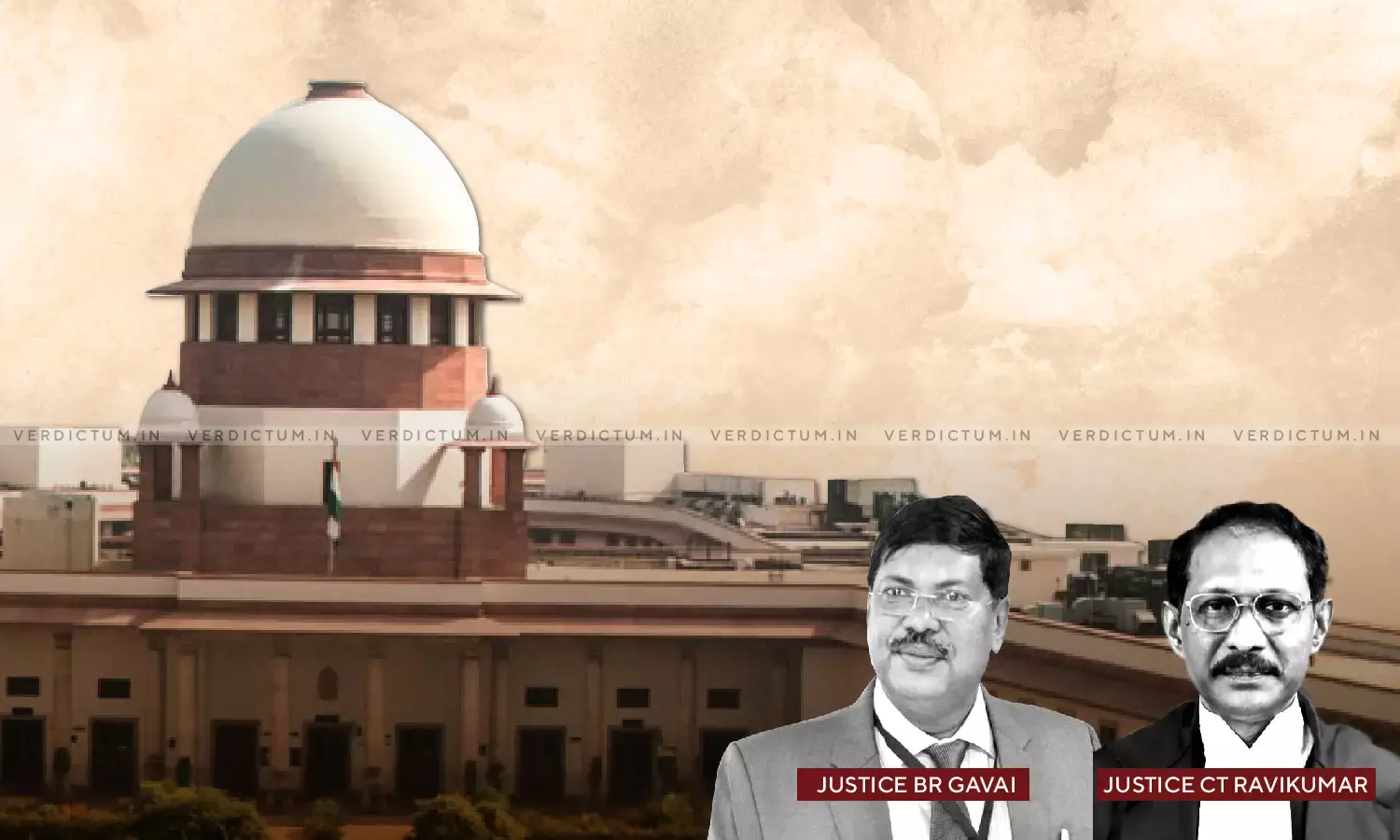No Effective Decree Can Be Passed In Absence Of Co-Owner Who Is Necessary Party: SC In Suit For Specific Performance

The Supreme Court's bench of Justice BR Gavai and Justice CT Ravikumar has observed that no effective decree can be passed in the absence of necessary party.
In this case, the plaintiff had took on rent a part of the house of the defendant. It is the case of the plaintiff that subsequently, the defendant was in financial need and therefore, he suggested to the plaintiff that he should purchase the said part of the house which the plaintiff was occupying, together with an added portion.
The plaintiff accepted the said suggestion and an agreement to sell was entered into. As per the terms of the said agreement to sell, the defendant agreed to sell and the plaintiff agreed to purchase the suit property for Rs.50,000/-. The plaintiff paid an amount of Rs.24,000/- and the defendant again requested for money and on such request, the plaintiff paid him an amount of Rs.6,000/-.
It is further the case of the plaintiff that he was always ready and willing to perform his part of the agreement and therefore, he informed the defendant by registered letter that he was willing to complete his part of the transaction. However, the defendant replied to the said notice by alleging that the transaction was of money lending and denied the execution of the sale deed.
In this background, the plaintiff filed a suit for specific performance before the Trial Court. The Trial Court decreed the suit and directed the defendant to execute the sale deed by accepting the balance sale consideration as per the terms of the agreement to sell.
On an appeal before the High Court, the High Court denied the specific performance, it directed the defendant to refund the amount of Rs.30,000/- along with an interest at the rate of 9% per annum from the date of the institution of the suit till its realization.
Aggrieved, the plaintiff approached Supreme Court.
Advocate Rahul Chitnis appeared on behalf of the plaintiff-appellant and Senior Advocate Harin P. Raval appeared on behalf of the respondent.
The Supreme Court noted that "…the plaintiff himself has admitted in the plaint that the suit property is jointly owned by the defendant, his wife and three sons. A specific objection was also taken by the defendant in his written statement with regard to non-joinder of necessary parties. Since the suit property was jointly owned by the defendant along with his wife and three sons, an effective decree could not have been passed affecting the rights of the defendant's wife and three sons without impleading them."
For being a necessary party, the Court observed that the twin test needs to be satisfied-
• there must be a right to some relief against such party in respect of the controversies involved in the proceedings.
• no effective decree can be passed in the absence of such a party.
Therefore the Court observed that "In view of the plaintiff's own admission that the suit property was jointly owned by the defendant, his wife and three sons, no effective decree could have been passed in their absence."
Accordingly, the Court dismissed the appeals while affirming the decision of the High Court.
Cause Title- Moreshar Yadaorao Mahajan v. Vyankatesh Sitaram Bhedi (D) Thr. LRs. and Others
Click here to read/download the Judgment

